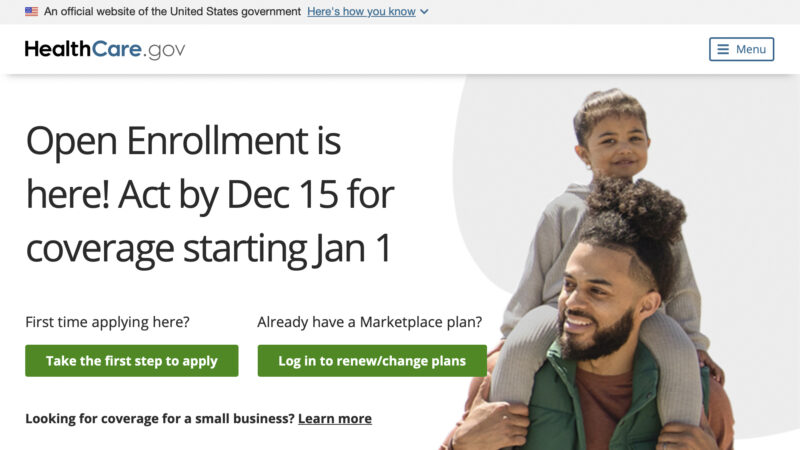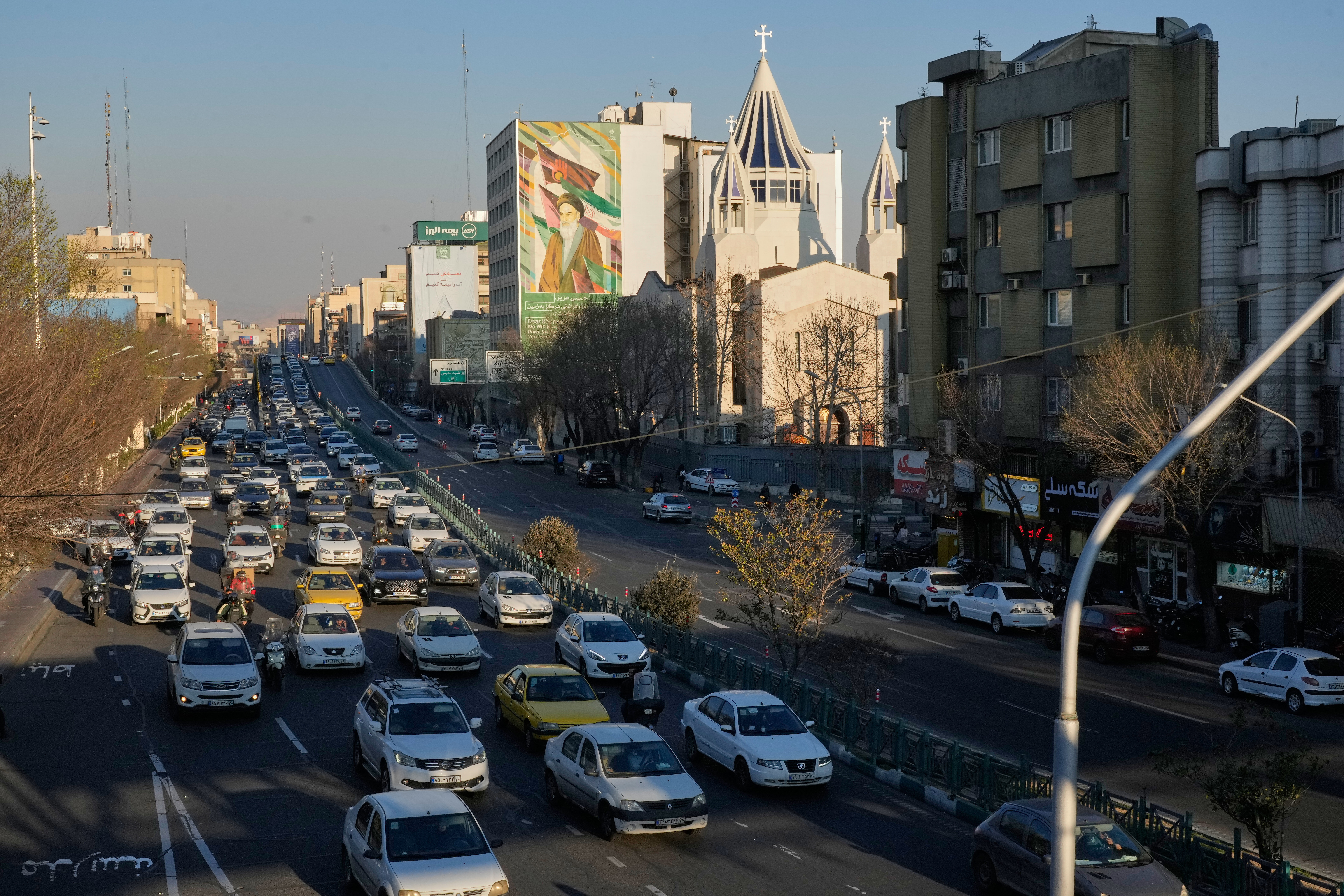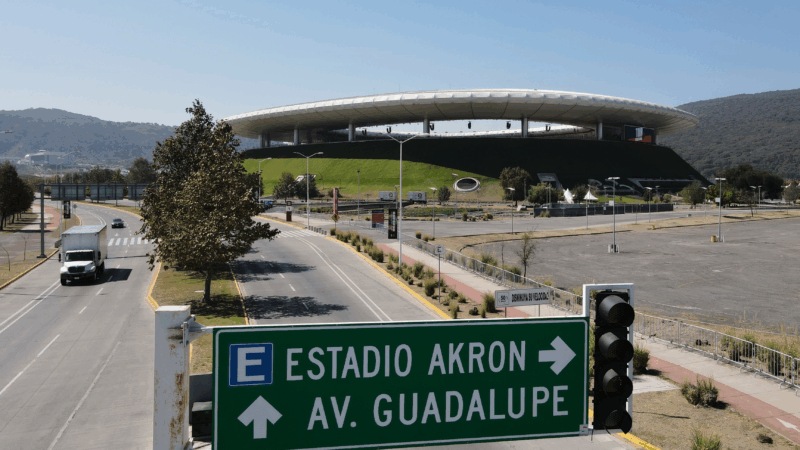Gulf South sees record ACA Marketplace enrollment, driven by enhanced subsidies
This file photo shows part of the HealthCare.gov website. A new report from the Kaiser Family Foundation found that enrollment in health insurance plans through the Affordable Care Act Marketplace reached a historic high in 2024, surpassing 21 million people. (AP Photo)
Enrollment in health insurance plans through the Affordable Care Act (ACA) Marketplace reached a historic high in 2024, surpassing 21 million people — nearly double the enrollment numbers from 2020.
A new report from the Kaiser Family Foundation (KFF), a health policy research group, found that the increase in enrollment is largely credited to the enhanced subsidies introduced by the American Rescue Plan Act (ARPA) in 2021 and sustained under the 2022 Inflation Reduction Act (IRA).
These enhanced subsidies have made health insurance under former President Barack Obama’s health care law more affordable by significantly reducing premium payments for enrollees across the board.
In short, they’ve made a big difference for almost everyone.
“It used to be that some people who were middle income were just priced out altogether from being able to afford health insurance on this market, but also some lower-income people had to spend maybe 2% or 3% of their income on a plan that maybe wasn't that attractive because the deductible might have appeared to be too high,” said Cynthia Cox, a vice president at KFF and one of the authors of the report. “With these new subsidies, it can make coverage more affordable with the monthly premium and can also make it possible for people to afford better coverage with a lower deductible.”
Cox said these subsidies have played out differently in different states. In particular, Southern states have seen the most growth, with several — like Texas, Mississippi and Georgia — more than doubling their marketplace enrollment.
Each Gulf South state was in the top 10 for enrollment increases in the report, but some individual differences were driving the growth.
Mississippi's enrollment surge
Since 2020, Mississippi’s enrollment has surged by 190%, making it one of the top five states with the fastest growth. This surge can be attributed to several factors:
- High uninsured rate: In 2019, Mississippi had a non-elderly uninsured rate of over 15%. The high demand for health insurance coverage among the uninsured population played a crucial role in the rapid enrollment growth once subsidies made insurance more affordable.
- Medicaid non-expansion: Mississippi has not expanded Medicaid under the ACA. In its place, individuals with incomes slightly above the poverty level, who would otherwise qualify for Medicaid in expansion states, turned to the ACA Marketplace. The enhanced subsidies brought premiums for silver plans down to $0 for people with incomes between 100% and 150% of the federal poverty level, making these plans highly attractive.
- Healthcare.gov platform: Mississippi uses the Healthcare.gov platform, which has shown higher enrollment growth compared to state-run platforms. The availability of Enhanced Direct Enrollment through Healthcare.gov also allowed health plans and insurance brokers to assist consumers directly.
Alabama's increasing enrollment
Alabama has also seen a significant 141% increase in ACA Marketplace enrollment since 2020. Several key factors have influenced this growth:
- High uninsured rate: Like Mississippi, Alabama had a high uninsured rate before the introduction of enhanced subsidies. The financial assistance provided by these subsidies made health insurance accessible to a larger segment of the population.
- Non-expansion of Medicaid: Alabama also has not expanded Medicaid, leading to a higher reliance on the ACA Marketplace for coverage. Individuals with incomes just above the Medicaid threshold have benefited from the enhanced subsidies, securing affordable insurance plans.
- Healthcare.gov platform: The use of the Healthcare.gov platform in Alabama has facilitated higher enrollment numbers. Enhanced Direct Enrollment options have also made it easier for residents to sign up for and maintain their health insurance coverage.
Louisiana's steady growth
Louisiana has also experienced significant growth in ACA Marketplace enrollment, coming in just ahead of Alabama with a 142% increase. Several factors have contributed to this trend:
- Moderate uninsured rate: Louisiana's uninsured rate, while high, was not as severe as Mississippi's. However, the enhanced subsidies still played a crucial role in making health insurance more affordable and accessible to many residents who were previously priced out of the market.
- Healthcare.gov utilization: Similar to Mississippi, Louisiana uses the Healthcare.gov platform. The platform’s streamlined enrollment process and enhanced direct enrollment options have been pivotal in driving up enrollment numbers.
- Medicaid expansion: Unlike Mississippi and Alabama, Louisiana has expanded Medicaid. This expansion initially reduced the number of people turning to the ACA Marketplace for coverage. However, as Medicaid unwound its continuous enrollment policy post-pandemic, many individuals transitioned to the Marketplace, aided by the enhanced subsidies, making the switch more manageable.
Challenges and future outlook
Despite the impressive growth in ACA Marketplace enrollment in the Gulf South, challenges remain. The enhanced subsidies under the IRA are set to expire at the end of 2025 unless renewed by Congress. The potential expiration of these subsidies poses a significant threat to the continued affordability of health insurance for many residents in Louisiana, Mississippi, and Alabama.
“If the subsidies expire, then we would expect premium payments to go up substantially for people who are enrolled now, and that might cause them to drop their coverage,” Cox said.
The non-expansion of Medicaid in Mississippi and Alabama also continues to limit access to health care for the lowest-income residents who fall below the ACA Marketplace’s subsidy threshold. Expanding Medicaid in these states could provide more comprehensive coverage options and reduce the uninsured rates further.
Cox said some of their findings were expected, and some — like the bump in enrollment potentially caused by the Healthcare.gov platform — were surprising. But for her, the report points to a clear desire for affordable access to health coverage.
“To me, that really underscores that people want health insurance. They don't need to be forced to get health insurance, but they need that health insurance to be affordable,” she said. “In the last few years, these enhanced subsidies have made that coverage much more affordable and much more attractive for people.”
This story was produced by the Gulf States Newsroom, a collaboration between Mississippi Public Broadcasting, WBHM in Alabama, WWNO and WRKF in Louisiana and NPR. Support for health equity coverage comes from The Commonwealth Fund.
U.S. and Iran to hold a third round of nuclear talks in Geneva
Iran and the United States prepared to meet Thursday in Geneva for nuclear negotiations, as America has gathered a fleet of aircraft and warships to the Middle East to pressure Tehran into a deal.
FIFA’s Infantino confident Mexico can co-host World Cup despite cartel violence
FIFA President Gianni Infantino says he has "complete confidence" in Mexico as a World Cup co-host despite days of cartel violence in the country that has left at least 70 people dead.
Supreme Court appears split in tax foreclosure case
At issue is whether a county can seize homeowners' residence for unpaid property taxes and sell the house at auction for less than the homeowners would get if they put their home on the market themselves.
Top House Dem wants Justice Department to explain missing Trump-related Epstein files
After NPR reporting revealed dozens of pages of Epstein files related to President Trump appear to be missing from the public record, a top House Democrat wants to know why.
ICE won’t be at polling places this year, a Trump DHS official promises
In a call with top state voting officials, a Department of Homeland Security official stated unequivocally that immigration agents would not be patrolling polling places during this year's midterms.
Cubans from US killed after speedboat opens fire on island’s troops, Havana says
Cuba says the 10 passengers on a boat that opened fire on its soldiers were armed Cubans living in the U.S. who were trying to infiltrate the island and unleash terrorism. Secretary of State Marco Rubio says the U.S. is gathering its own information.







